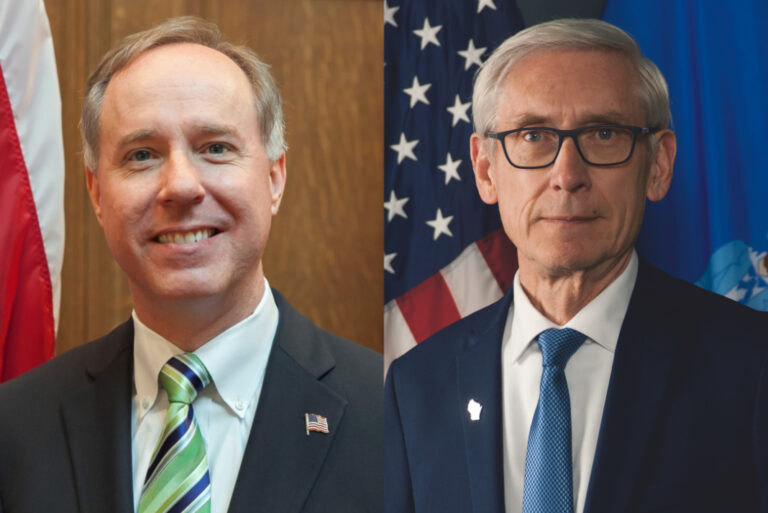
Wisconsin’s governor says he will 100% veto a flat tax, and the top Republican in the State Assembly says he knows that.
Both Gov. Tony Evers and Assembly Speaker Robin Vos talked about the proposal to take Wisconsin to a 3.25% flat income tax during appearances on TV over the weekend.
The governor was on Capital City Sunday in Madison. He once again vowed to kill the Wisconsin flat tax proposal.
”The flat tax proposal, where it’s going to be equal across all parts of Wisconsin, is not in my bailiwick,” Evers said during the interview,
Evers has made it clear in the past that he doesn’t support the Republican’s flat tax proposal, but he said for the first time over the weekend that he may “possibly” veto the entire state budget to stop it from happening.
“[The flat tax] is a death nail for me,” the governor added. “I think our progressive tax system is a good one. And we don’t need to be spending our time and effort to provide the wealthiest of Wisconsinites with an extraordinarily large tax cut.”
Meanwhile, Vos was on UPFRONT on Milwaukee TV, talking about the flat tax as well.
“I think we need to have significant tax reform to be able to make sure that Wisconsin remains competitive,” Vos said.
Vos said that may or may not include a 3.25% flat tax.
“That would be my preference. But again, I understand that Gov. Evers has concerns with that,” Vos added. “The most important thing for us to do, is we have to make big efforts toward reducing our tax burden. A flat tax would be ideal. But if we can’t get to ideal, there are other ways to get there.”
Senate Majority Leader Devin LeMahieu, who introduced the Wisconsin flat tax proposal this month, has said the flat tax proposal currently up for debate may not be the final plan that reaches the governor’s desk.
Gov. Evers will deliver his budget speech next month, and the Republican-controlled legislature will then write the state’s new two-year spending plan.
Evers said on Capital City Sunday that his ideas, even in a Republican budget, “never go away.”
In addition to tax reform, this year’s budget will likely include something new on shared revenue of local governments, school funding, and other plans on how to spend or return Wisconsin’s record $7.1 billion surplus to taxpayers.